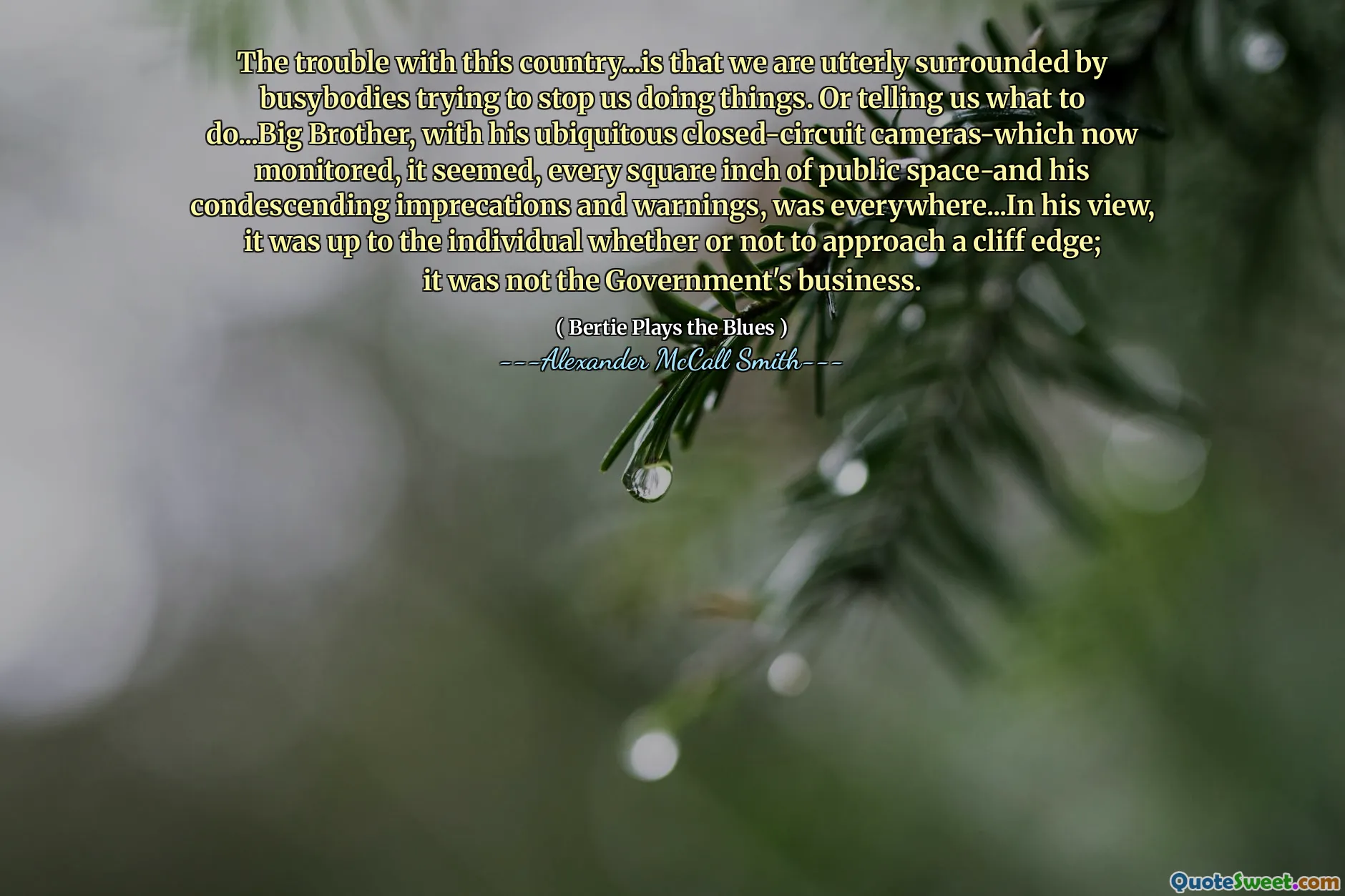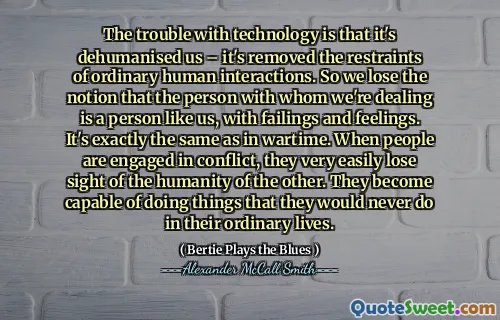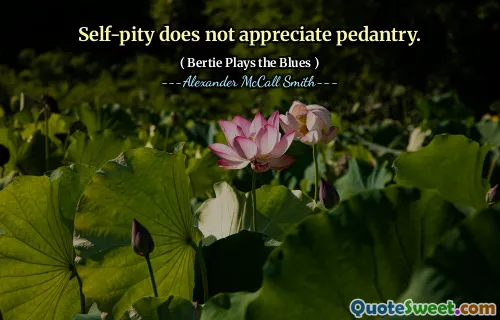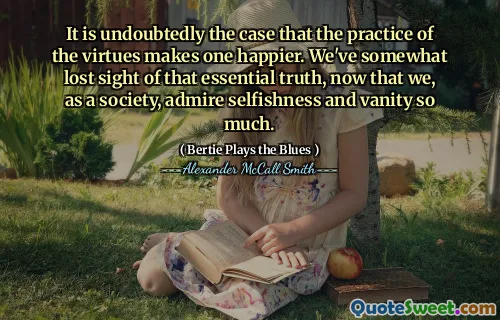
The trouble with this country...is that we are utterly surrounded by busybodies trying to stop us doing things. Or telling us what to do...Big Brother, with his ubiquitous closed-circuit cameras-which now monitored, it seemed, every square inch of public space-and his condescending imprecations and warnings, was everywhere...In his view, it was up to the individual whether or not to approach a cliff edge; it was not the Government's business.
In "Bertie Plays the Blues" by Alexander McCall Smith, the author illustrates a profound concern about the pervasive intrusion of authority in everyday life. The protagonist expresses frustration over being surrounded by those who seek to control actions and decisions, highlighting the struggle against a society filled with overbearing influence. This encapsulates a broader critique of contemporary governance, suggesting that individuals should have the autonomy to make their own choices without constant supervision or meddling from the state.
The imagery of Big Brother represents modern surveillance culture, where every move is monitored, creating a sense of oppression. The protagonist argues that personal responsibility should empower individuals to make decisions, even if they bear risks. Rather than a protective presence, the government's role is questioned, advocating for a return to personal freedom and choice, even in the face of potential danger. This perspective urges a reconsideration of how much control is appropriate in the quest for safety and conformity.





